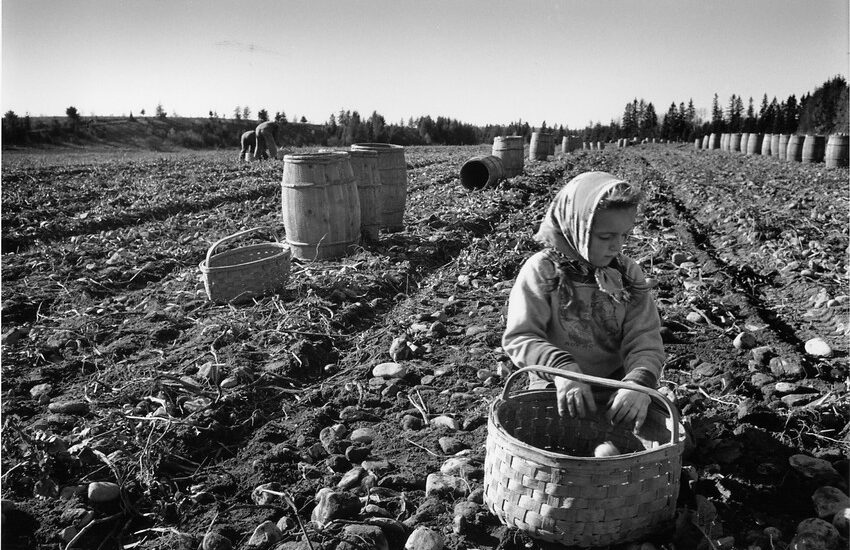Welcome to Aroostook County, fondly known as ‘Potato Country,’ where vast fields stretch under the wide skies of northern Maine. This is a land where agriculture and history intertwine, shaping the lives of its people and the landscape itself. Aroostook’s story begins long before it became synonymous with potatoes. Originally inhabited by the Algonquian-speaking peoples, the area played a crucial role in the life of the Wabanaki Confederacy. European settlers arrived in the early 19th century, drawn by the promise of fertile land. The potato became king here in the mid-19th century when Irish immigrants brought their farming expertise to the region. By the early 20th century, Aroostook was producing a significant portion of the United States’ potato supply. This agricultural boom brought prosperity and growth to the area, with railroads and roads improving access and transport. One of the notable figures in Aroostook’s agricultural history is James B. Longley, a former governor of Maine, who hailed from the region and was a strong advocate for the local farming community. Over time, Aroostook County has evolved, yet its agricultural roots remain vital. Today, while the prominence of potato farming has declined, it continues to be a cultural and economic cornerstone. The county also celebrates its heritage through events like the annual Maine Potato Blossom Festival, which highlights the community’s enduring connection to this humble crop. As you journey through Aroostook, picture the generations of farmers who have tilled these fields, the families who have called this land home, and the rich history that is as deep as the soil itself.



